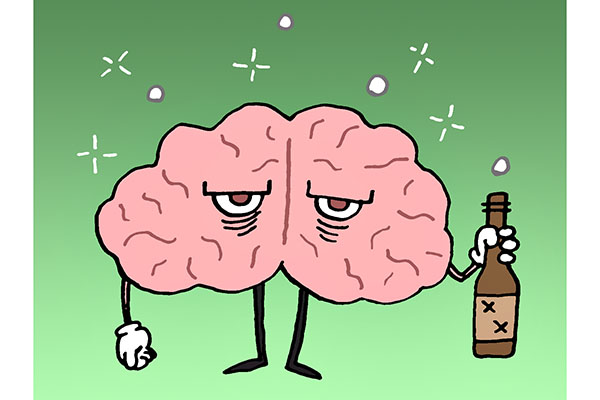A new study, co-authored by researchers from UT, has revealed the genetic factors that can cause alcoholism.
The research used various scientific tools, such as genetics-based approaches, to better understand the molecular mechanisms underlying alcoholism, said Dayne Mayfield, a UT research scientist at the Waggoner Center for Alcohol and Addiction Research.
Mayfield, a co-author of the paper, said the molecular mechanisms associated with alcoholism are very difficult to work out because so many genes are involved.
“Each individual gene contributes a very small amount to the overall problem, requiring us to examine changes in all known genes at the same time,” Mayfield said.
Mayfield said the study utilized the largest number of postmortem brains that have been studied to date for alcoholism.
“This study is somewhat unique since we used brain tissue from human alcoholics rather than an animal model,” Mayfield said. “Tissue was obtained from a brain bank in Australia from alcoholic individuals as well as nonalcoholic controls.”
The paper was a collaboration between UT scientists with the Integrative Neuroscience Initiative on Alcoholism and researchers from the Collaborative Studies on Genetics of Alcoholism (COGA) consortium.
Researchers analyzed an expression of genes in the brains of alcoholic individuals compared to the control brains and combined the data with genetic data, said Manav Kapoor, a member of the COGA consortium.
“This helped identify different networks of genes that were differentially expressed in alcohol dependent individuals,” said Kapoor, a co-author of the study.
The study pinpoints new networks of genes or proteins that are functionally important in the development of alcohol dependence and can be therapeutic targets, said Alison Goate, an author of the study and a member of the COGA consortium.
“There isn’t one gene that does any of these things. There are tens and hundreds of genes that interact together and with the environment that can factor into alcohol dependence,” Goate said.
Kapoor said this includes a gene-environment interaction, where drinking is affecting the existing gene.
“People who have the genetic background, if they drink more, have more probability of becoming dependent,” said Kapoor.
This research is important in order to better understand the causes of the disease, said Yunlong Liu, a member of the COGA consortium.
“We need to understand whether people will have alcohol use disorders, what are the gene expression differences that make some people more susceptible to alcohol dependence and how alcohol impacts the brain after years of drinking,” Liu said.
Mayfield said this research is exciting because it generates new hypotheses to explore and provides new avenues of research, such as identifying potential new treatment options. Currently, there are only three FDA-approved treatment options in the United States.
“Given the social and economic impact of alcoholism, it is striking that there are so few FDA-approved treatments available in the U.S.,” Mayfield said. “We hope our work will lead to new treatment options.”





















